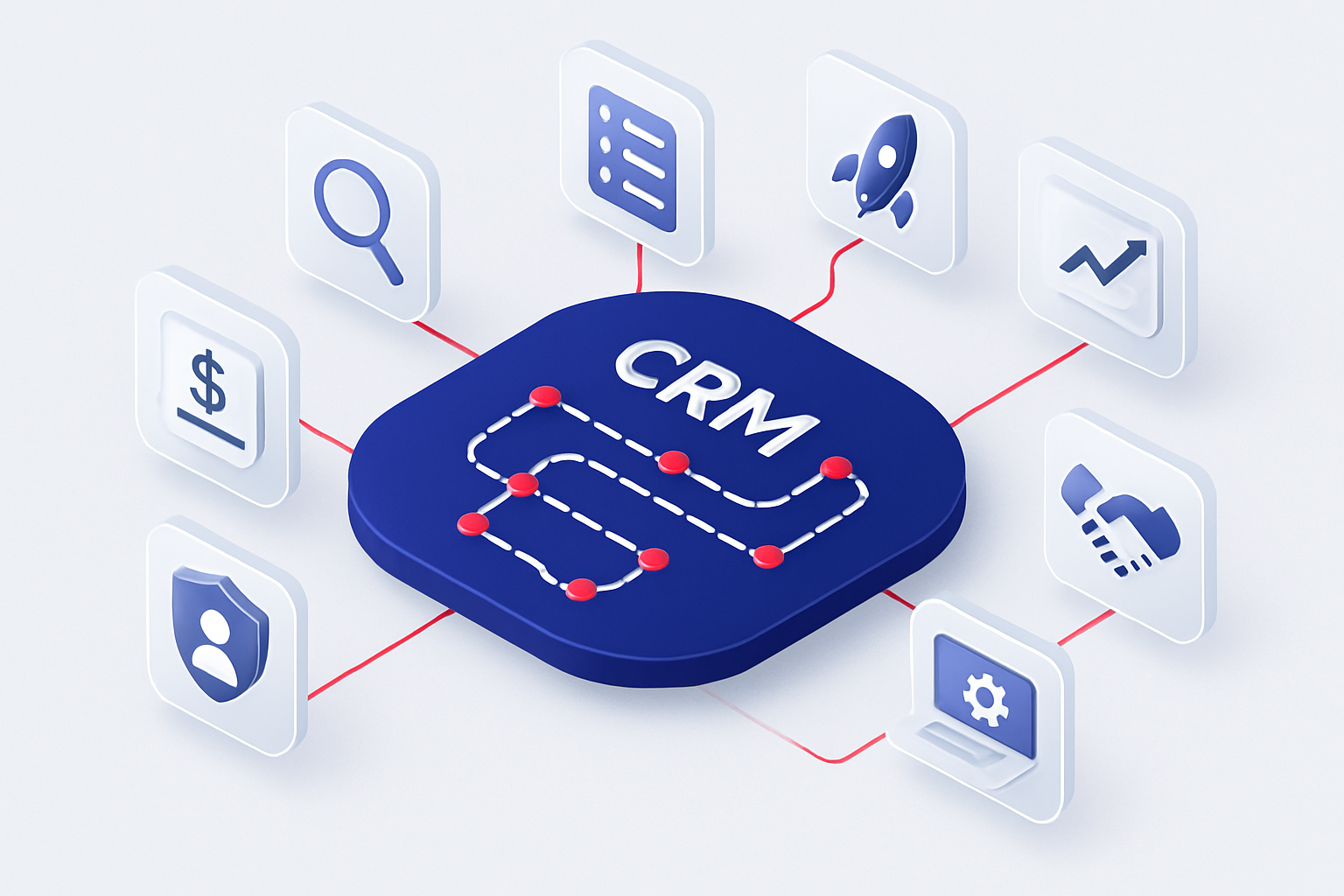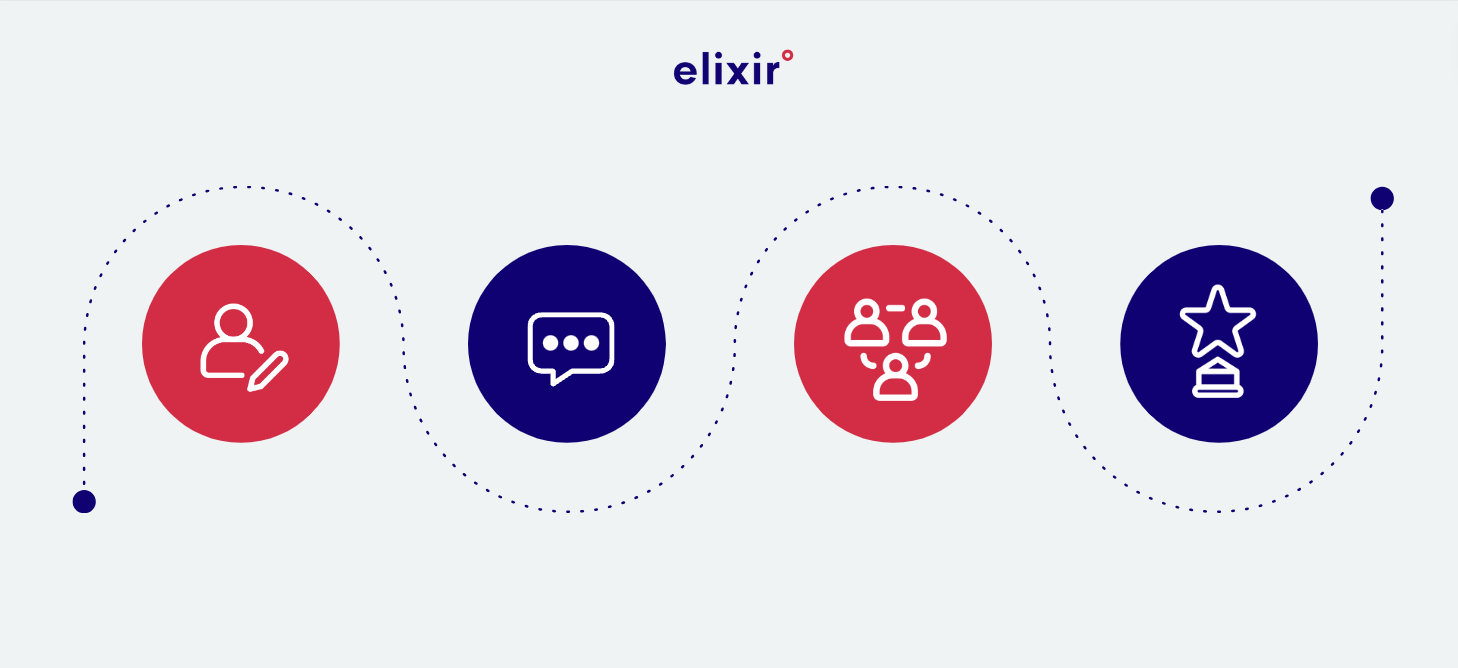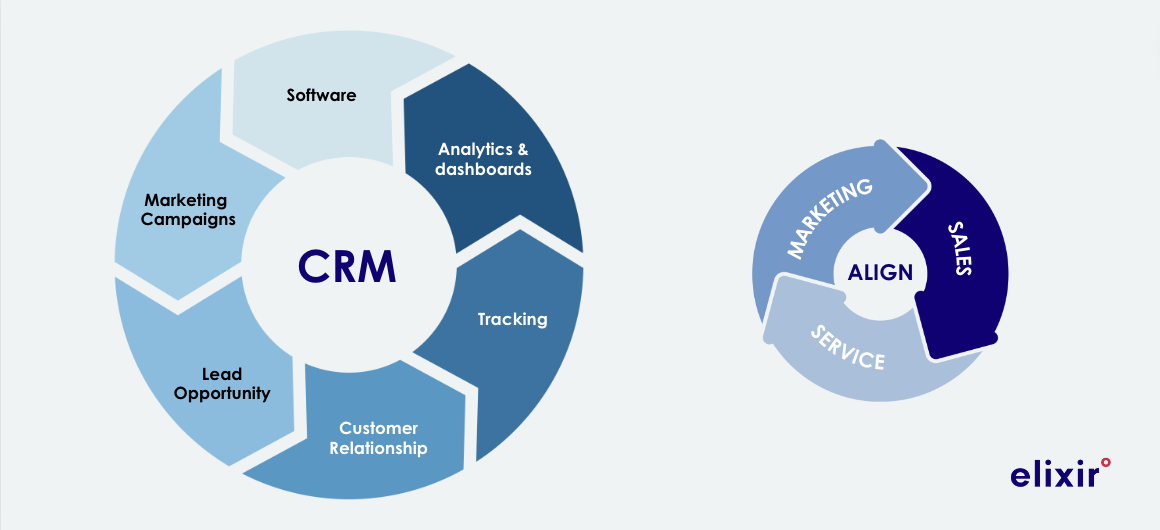A roadmap for the implementation of a CRM - update 2024

A CRM is more than a tool; it's a catalyst for transformation, uniting every customer-facing department under a common purpose. It's the force that aligns teams, centralizes invaluable information on contacts, and ensures seamless access across time, location, and departments.
Are you considering implementing a CRM to kickstart growth in 2024? We've got you covered! Implementing a CRM can be overwhelming, as it involves careful consideration of factors such as time, training, adaptation, and budget. In this blog post, we provide you with a comprehensive roadmap that we have designed for a successful CRM implementation. This roadmap will give you a high-level overview of how to approach this decision in the most effective way possible!
TABLE OVERVIEW
2. Estimate & validate Your Budget
4. Find your implementation partner
5. Set up of the tool(s), data migration
6. Training, Testing, and Approval Processes
The Essential Role of Customer Relationship Management (CRM) Implementation
A Customer Relationship Management is a tool to help you manage your relationship with your contacts, prospects, customers. It includes data on the contacts, their companies, the interactions you had with them and much more, depending on the CRM.
Implementing a CRM is thus something you do when you encounter some issues in this area. Like any other digitalization project, it answers to frictions that your customer is facing or an issue that your team encounters.
1. Identify the issues
By Pinpointing Pain Points & listening to your team members OR Mapping the customers journey
-
Involving Your Team: The Cornerstone of CRM Success
The first step of the CRM implementation roadmap is to identify the pain points. For that, listen to your teams. They will give you the knowledge of what they are living on a daily basis. This knowledge is important in order to build a solution that your teams will actually use.
> You don't want, for example, that your sales team don't use your CRM.
-
Mapping the Customer Journey: Navigating Experiences, Anticipating Needs
Collaborate with your team to Map the customer's journey and pinpoint areas where customers may be having a less than ideal experience. By working closely with your team members, you can gain valuable insights into the challenges and pain points that customers are facing at different stages of their journey.
Once you have pinpointed these pain points, it is crucial to explore the solutions that can effectively tackle them and improve overall customer satisfaction. This might entail:
-
-
-
- implementing specific strategies
- and features.
-
-
Furthermore, it is essential to conduct thorough research on the CRM market to align your needs and requirements with the available features, ensuring a comprehensive understanding of potential solutions.
Always bear in mind, seeking advice from experts, even if you have a roadmap in mind, can significantly enhance your CRM implementation. Consulting with experts can transform your CRM implementation from good to exceptional
>>> This should end with a functional list of requirements.

2. Estimate & validate Your CRM Implementation Budget
Tackle this challenge by considering the costs of the tools, requirements and securing buy-in from decision-maker(s).
Money talks, right? When it comes to CRM, estimating costs is crucial. Once you have clearly defined the scope of your project, it is crucial to estimate the associated costs. This includes considering not only the cost of the tools but also the resources required, such as:
-
-
- materials and
- the hours spent by your teams.
- Additionally, you should take into account the costs related to the supplier,
- the implementation partner,
- training,
- and ongoing maintenance.
-
However, it is equally important to highlight the benefits that your business will gain from this project.
But it's not just about the dollars; it's about securing buy-in from decision-makers. Let them in on the process, make them part of the journey. Trust us, having decision-makers on your side is like having a secret weapon for success & ensuring a smoother implementation process.
3. List your requirements
Crafting a Successful CRM Solution Starts with Defining Your Requirements
Selecting a Customer Relationship Management (CRM) solution is more than just a choice of tools; it's a strategic decision that shapes the future of your business. Begin by meticulously outlining the specific requirements you expect from the proposed solutions. For a deeper understanding of what to look for in a CRM, explore our insightful blog: what to look for in a CRM.
As you solidify your vision, consider taking the next strategic step – issuing a Request for Proposal (RFP). This comprehensive document should not only outline your specific requirements but also provide essential information on:
-
-
-
- budget constraints,
- project timelines,
- vendor preferences,
- a detailed company description,
- and the overarching goals of your CRM implementation project.
-
-
>>> By creating a clear roadmap, you pave the way for a purposeful and effective implementation process tailored to the unique needs of your business.
Need help to design the roadmap adjusted to challenges & your unique needs? Connect with our experts for a free discovery call to kickstart your transformation today!
4. Find your implementation partner
Strategic Alliances: Navigating Your Quest for the Ideal CRM Implementation Partner
When seeking an implementation partner, reach out to professionals in your region or those specialized in your specific requirements.
> For instance, if seamless integration between SAP and HubSpot is your goal, connect with a partner with expertise in this niche.
Revisit your criteria and meticulously evaluate proposals against your unique needs. Schedule meetings with diverse suppliers to gain deeper insights into their offerings. This crucial step ensures an informed decision-making process.
To pinpoint the best proposal, consider these key questions:
-
-
-
- Does the proposal align with your requirements?
- Does it resonate with the realities of your business, teams, and industry?
- Is the partner perceived as reliable and trustworthy?
- What is the depth of the partner's expertise?
- Does the partner grasp the intricacies of your situation comprehensively?
- How does the proposed budget align with your financial considerations?
-
-
Once you've identified the perfect partner and selected the optimal CRM solution, the groundwork for success is laid, and the real work can commence!
5. Set up of the tool(s), data migration
OPTIMIZING OPERATIONS: Expert Tool Setup and Streamlined Data Migration for Seamless CRM Implementation
But wait, there's more! The setup process is a crucial step on your CRM journey, and it's in the hands of your implementation partner. Engage in discussions to deepen their understanding of your unique situation, allowing them to craft the optimal architecture for your business— collaboration is the key. Don't underestimate the significance of this step! The setup phase plays a vital role in ensuring that your CRM solution aligns seamlessly with your processes and supports all your organizational goals.
And that's not all - we can't forget about data migration. You've got some valuable customer data that needs to seamlessly integrate into your shiny new CRM tool. This data is invaluable and needs to be of the highest quality to maximize the effectiveness of the tool and the right setup to maintain the quality of your data throughout the migration process.
Team up with CRM implementation experts to navigate this complex process, as we're seeing more and more ineffective setups due to mishandled data. Partnering with these experts guarantees a seamless transition and safeguards the integrity of your valuable data.
It's all about making that data work for you!
6. Training, Testing, and Approval Processes for Successful CRM Implementation
Precision is the key to configuring your CRM solution exactly as needed, and this begins with rigorous testing at every juncture. Test the environment, provide constructive feedback to your partner, and iterate through the process. Engage your teams in the same practice—ensuring end-users have all they need and a platform to provide valuable feedback is paramount.
To facilitate this, kickstart the process with comprehensive team training. Your teams must not only understand how to use the tool but also actively engage in testing to ensure it aligns with their requirements. This training serves a dual purpose—it equips your teams while providing an initial hands-on experience, a crucial aspect of change management.
Once you've dotted all the i's and crossed all the t's, it's time to hand over the reins to your partner and let the deployment phase begin! This is where all the hard work of testing, training, and gathering feedback pays off, as you smoothly transition into the operational phase. Get ready to see your CRM solution in action!
7. Go-live
SEAMLESS TRANSITION: Expertly Navigating Training, Implementation, and Everyday Operations Integration
Initiate your teams into the final solution, ensuring they can independently execute their tasks. This phase is dynamic, filled with hands-on experimentation and a deep dive into the tool. Effective change management is the key to assure for project success.
Upon the completion of training and deployment, seamlessly integrate the solution into your daily operations, marking the commencement of enhanced efficiency in your everyday activities.
8. Evaluating Success: Navigating Key Project Phases
Reflecting on Project Progress and Outcomes
Evaluation is like looking in the rearview mirror of your project. Take the time to go back and carefully analyze every twist and turn, every milestone, and the outcomes achieved. This reflective process is absolutely crucial for figuring out what went right, where there's room for improvement, and extracting those precious nuggets of wisdom to fuel your future endeavors.
9. Regular review
Fine-Tuning Operations: Vigilant Monitoring for Adaptive Growth in CRM Implementation
Consistently monitor and assess the functionality within your teams. Regularly check for any necessary adjustments or improvements. Processes may evolve, and your teams might uncover the need for new features to enhance efficiency. Stay attuned to their feedback and collaborate with your partner to seamlessly integrate any necessary changes into the solution.
To succeed in a CRM implementation project, following this roadmap is the first step
This roadmap serves as a versatile foundation that can be tailored to suit your unique circumstances. As your CRM takes its place in your operations, delve into its utilization, emphasizing enhancements in customer experience and operational efficiency.
Ready to revolutionize your CRM approach? Let’s embark on this transformative journey together! Contact our experts to amplify the potential of your CRM implementation.


